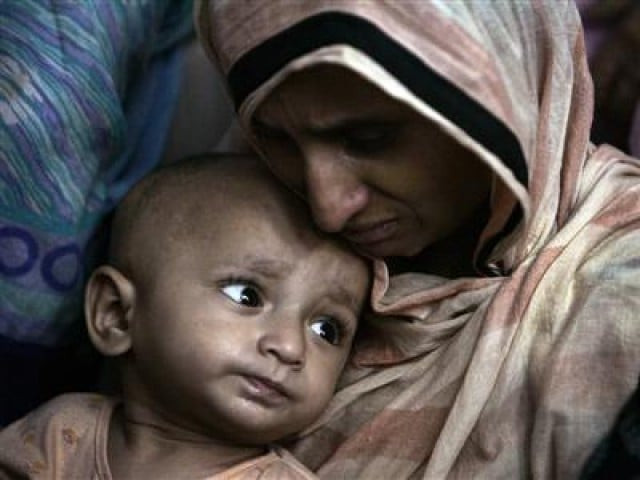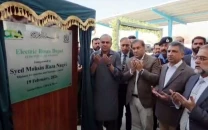140 children living in Punjab jails with mothers
Experts warn of psychological toll; govt promises child specialists in prisons

At least 140 children under the age of six are living behind bars in Punjab — not for crimes of their own, but because their mothers are serving time. Official records obtained by The Express Tribune reveal that these children, including 67 boys and 73 girls, are spending their formative years within the walls of 45 different prisons across the province.
According to data from the Punjab Home Department, Rawalpindi's Adiala Jail and Multan Women's Jail house the highest number of such children.
Lahore Central Jail currently holds 10 minors, five boys and five girls, while Gujranwala Central Jail has 12, Kasur District Jail has two boys, and Sheikhupura has three girls. Over 100 women across Punjab prisons are raising their children in captivity.
Asiya, imprisoned in Kot Lakhpat Jail, recounted how years of domestic abuse led her to strike back at her husband, resulting in his death.
"I have two children. His family refused to keep them, so I have no choice but to raise them in jail," she said. Fatima Bibi, a domestic worker from Okara, claimed she was falsely accused of theft. With her drug-addicted husband absent, she is raising her daughter behind bars. Another inmate, Tayyaba Bibi, said she was wrongly implicated in a robbery case after her divorce and is now raising two children in prison.
Life for children in jails is bleak. Inmates allege that prison staff sometimes force children into menial tasks. Although schools and religious classes exist, teachers reportedly visit irregularly. Food usually consists of basic lentils and bread, with little variety.
"Sometimes visitors bring toys, biscuits, and clothes for us, especially on Eid," said four-year-old Talha, who has known no life outside the prison.
Prison authorities, however, defend the arrangements. Inspector General Prisons Mian Farooq Nazir said children are being provided with healthcare, education, food and recreational facilities in accordance with the law.
DIG Prisons Headquarters Mian Salik Jalal explained that legally, children under five are considered infants and are allowed to stay with their mothers in jail. Once they turn six, they are either handed over to relatives or sent to SOS Villages.
Punjab's Home Secretary, Dr Ahmad Javed Qazi, acknowledged the psychological impact of prison life on children but said the law requires infants to stay with their mothers until the age of five.
Meanwhile, child rights activists argue that these children are paying for crimes they never committed.
Fatima Tahir, a psychologist who leads Unicef's child welfare and protection projects, highlighted that children who grow up in prisons with their mothers serve a sentence they never earned. "Their world is shaped by walls, bar, and uniforms and their learning comes not through play and discovery, but through imitation —copying aggression, fear, or submission."
She also pointed out that many of these children suffer delayed speech and cognitive development due to a lack of stimulation, while others develop conduct and attachment disorders that leave lasting scars. "One of the deepest traumas arrives at the age of six, when the law requires children to be separated from their mothers," she remarked.
Fatima was of view that even when these children step into freedom, life outside the prison walls can feel bewildering.
"For them, fear becomes the baseline of existence: fear of leaving their mother, fear of authority, fear of a world they cannot comprehend," she said, highlighting the traumas.
"Unless we create safe alternatives — child-friendly spaces, counselling, and early education — we risk raising a generation burdened not by their own mistakes, but by the trauma of a stolen childhood," she said.
Syeda Farah Hashmi, head of a child welfare organisation, said "they deserve to grow up as responsible citizens, not as forgotten inmates of a system they don't belong to," she stressed.





















COMMENTS
Comments are moderated and generally will be posted if they are on-topic and not abusive.
For more information, please see our Comments FAQ